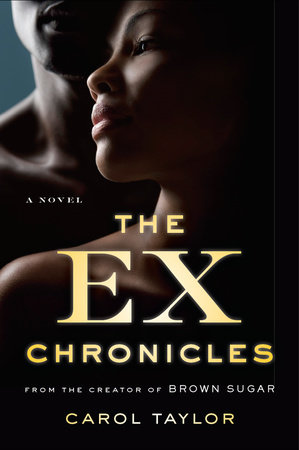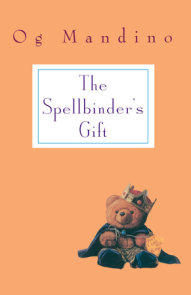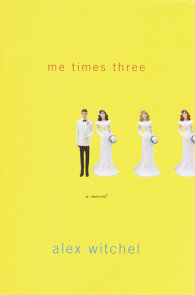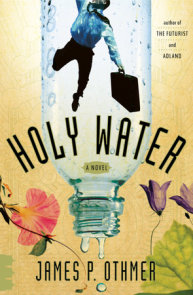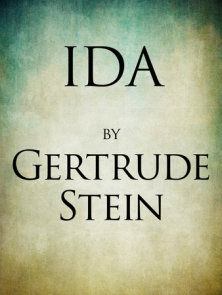READERS GUIDE
Questions and Topics for Discussion
INTRODUCTION
Life is hard enough in a fast-paced, bustling New York City without added emotional drama, but a small group of friends, Precious, Bella, Zenobia and Hope –vivacious and interesting women, some with high-powered, successful careers – are less than successful when it comes to navigating their romantic relationships.
Each woman – smart, witty, beautiful and strong – can’t seem to put her trust in a man who won’t cheat, victimize, or manipulate her. Precious walked in on her fiancé in bed with another woman. Bella’s in the throes of alcohol and drug addiction thanks to her boyfriend, Julius, a musician she finds equally addictive and difficult to quit. Hope, a highly paid but overworked editorial director at a leading women’s magazine, is abandoned by her fiancé when her already complex life becomes further complicated by the death of her father and the onset of her mother’s dementia. And the stunningly beautiful Zenobia, who exchanged a successful modeling career in Europe for her boyfriend’s infidelity in New York City, can’t seem to kick his freeloading butt to the dirt and appreciate the business partner who’s loved her and been there for her all along. Together, all of these women have been burned, and yet they each still long to be loved, honored, and cherished by the men who devalue them.
By turns funny and heartbreaking, The Ex-Chronicles follows four women who discover that even if they can’t always rely on the men in their lives, they can rely on themselves and the power of their friendship with one another.
ABOUT CAROL TAYLOR
Carol Taylor is the editor of the award-winning, bestselling Brown Sugar erotic fiction series. Taylor writes an online column for Flirt.com, as well as numerous other publications. She is an event coordinator for McNally Robinson Books in New York City.
A CONVERSATION WITH CAROL TAYLOR
Q. One of your characters, Precious, abandons the freelance lifestyle for a more stable job in publishing – while you worked for ten years at a major publishing house, but left to become a well-known writer of erotica and editor of the best selling Brown Sugar series. What have you learned about writing and publishing during your time on either side of the editorial desk?
I’ve learned many things from my 12 years as a book editor and then as a writer and editorial consultant: One: is that the grass is always greener on the other side. I don’t kid myself in thinking that I could have the accomplishments I have as a writer if I hadn’t been an editor in the first place. My contacts as well as my skills as an editor have been invaluable to me in the way I think as a writer and in the jobs I get as an editor. As an editor I learned how to navigate the corporate world, how to collaborate, how to edit, and how to write cleanly but descriptively. As a writer I’ve learned how to promote myself and my books, and the importance of pitching my books as series to extend the life of my work.
Although Precious loves the life of a freelancer: making her own hours, working in her pajamas, not dealing with corporate culture (which is what she and I are most afraid of) she really misses the security of a paycheck and the camaraderie of collaborating with co-workers. As much as I disliked the corporate culture I know the experience was invaluable to me as a consultant who owns her own business, makes and meets deadlines, and knows how to handle herself in a meeting. Precious slowly learns to trust herself and then to navigate the corporate world. This will ultimately give her far more freedom to plot her own course in the future than if she’d stayed a freelancer. Precious and I did the same thing, just in reverse.
Q. How different was the process of writing a piece of romantic fiction from the process of writing erotica? Was it simply a matter of not getting too graphic with your descriptions of the physical relationships – or were you able to develop characters, and their relationships, more fully? Which do you find more satisfying, artistically – erotica, general short fiction, or romance novels? (And would you consider this a romance novel?)
For me, the distinction between erotica and romantic fiction is the degree of sex on the page. I cut back on the depth of the sex scenes in a few places when I’d finished the book, because it was distracting from the story. I don’t actually have a preference; I like writing in all facets of the fiction genre. I don’t believe I write romance novels, though there are definitely elements of them in my fiction. It’s definitely fun to write a purely erotic piece because you have a carte blanche to let your sexual imagination run wild. I would consider The Ex Chronicles a romantic novel, not a romance novel, because it’s less formulaic than that. Yes, all the elements are there—love lost, love found—but I’ve taken the formula and made it more modern with the characters and the dynamic of their relationships. There are also contemporary problems in the novel, such as women making more money and having more power than the men they are dating, which comes with its own set of problems. These are issues many women are dealing with today.
Q. Your characters in this novel are primarily women of color (save a couple, like Bella and Miriam). Why is it important that this demographic have their own genre of fiction? What messages or themes were you hoping to express through these characters and their stories? What, do you feel, makes their stories accessible to any woman, of any color?
I grew up reading Harlequin romances, I loved them, learned all my best words from them, actually, but I always felt like I was looking into someone else’s world. The worlds I create in my fiction I would hope appeal to women of color because they find themselves, and their friends in the stories. I hope that they are relatable because of the worlds I create where people of color live. For instance in The Ex Chronicles, it’s the Dominican neighborhood of Washington Heights, or the black enclaves in Fort Greene. Neighborhoods like these have their own culture, style, sounds and smells that are relatable to people of color. I don’t read a lot about immigrants in fiction unless it’s fiction specifically about immigrants. I’m an immigrant, in fact most people are immigrants; people who come from somewhere else and have made NY their home. I want their experiences to not be seen as special but to simply be a part of the fabric of their lives, as it really exists in life. I want Hispanic characters like Portia to speak the way they would in real life, which is Spanglish, a mix of English and Spanish. I want black women to see themselves—with their natural hair and their afrocentric style—in my fiction.
Although the characters are best friends, each woman is very different: Hope is Bourgie; permed hair, highly educated, snobby; Bella is white, spoiled, rich, addicted, manipulative but, but genuinely a good friend, Zenobia is British and Jamaican with locks and dark skin, she is cosmopolitan and international, Precious is an immigrant, with natural hair and an artistic temperament who though talented is also insecure. We all know these women, they represent parts of ourselves and unfortunately we don’t see them very often in fiction. Not even in the new urban fiction that is doing so well today, a number of those books and characters tend to be cookie cutter and redundant. I know lots of international black people and they are not often portrayed in fiction moving in and out of their many worlds the way that they do in reality. I wanted to portray this as not the exception but as the rule in a matter-of-fact way. No one questions that these four women could be best friends, they simply are, and as modern women we know this is a reality. Also, though I am Black, I don’t only have Black friends. My best girlfriends are Asian, white, black, and Hispanic. Women today, don’t live in only one world but we move through many during the course of our day. I try to portray this in the novel.
Q. You write an advice column titled “Off the Hook: Advice on Love and Lust”. What is the most common type of question you’ve encountered through this column? How have you answered that question? Did any of your experiences writing this column influence your novel?
What to do to get and keep a man is most often the theme of the questions I get at Off the Hook. Or deciphering men and their motives, which being a little older than the demographic of Off The Hook I have some experience with.
However what mostly influenced The Ex Chronicles was me trying to get a handle on the many changes that occurred to me in the last three years: like Hope my dad died suddenly and my mom has Dementia, I was engaged but the pressure was too much on the relationship. Like Precious I had a novel to write, one that I’d sold as a happy go lucky girl in New York, but a year later the reality was very different. I was depressed, overwhelmed and grieving about the loss of my family and trying to handle and cope with being the caregiver and like Zenobia, I was in an emotionally abusive relationship. The only way I could write The Ex Chronicles was if I wrote about what I was going through. Writing about it gave me a way through not only the novel but through that dark period.
The overarching premise in the book is that it’s not what happens, but how we handle what happens that defines us. Life is chaos; it’s our panicky reactions to it that makes it worse. This actually gave me a better, more relatable, and better-rounded story and characters that I hope will resonate with readers who are all finding their own paths down this winding road called life.
Q. What do you anticipate doing next? Do you have any other novels that you’re working on at the moment?
I’m working on the follow up to The Ex Chronicles. In the book there is a three-month gap between Derrick signing with Suki at the Robert Miller gallery and the opening. I start the next book during this time period. The reader will get to see the process of Derrick working on the pieces and his relationship dynamic with Hope and his daughters while he’s living at Hope’s Town House. We also open with Zenobia and David going to Washington Heights right after Rey’s attack on Portia and what ensues. We follow Bella to rehab and go on that journey with her and Miriam who also gives up drinking to support her daughter. We follow Precious and Darius’s new relationship as she makes her way through the corporate structure at Shades and how Hope navigates her new alliance with Fiona and her relationship with Derrick, which culminates with him asking Hope to marry him at the opening. This way readers familiar with the first book get to fill in any blanks they may have and new readers get filled on the first book as they read the second, which makes both books relate to each other without having to recap in an obvious way.
I really love these women and there is a lot more to them, so I have planned four books to tell their stories fully. I hope the reader will be able to relate to them even though they are all far from perfect. I hope readers will want to spend time getting to know them and maybe learn from them; if not what to do, what not to do.
DISCUSSION QUESTIONS







